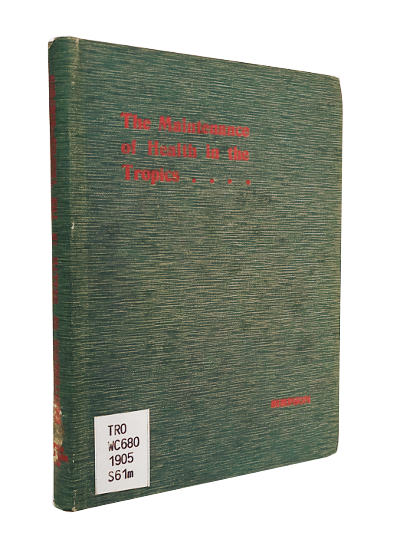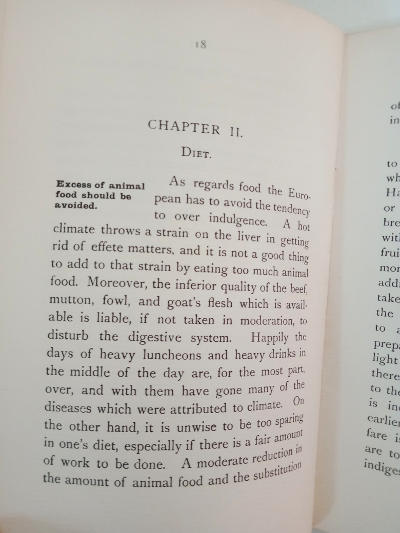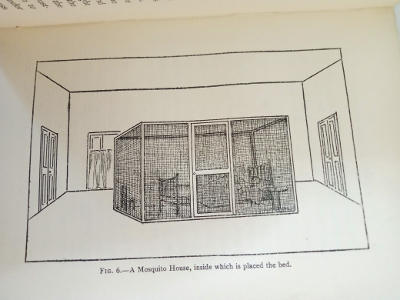A guidebook by a pioneer of tropical medicine who was in Singapore in 1906 to study sanitation. This book is currently featured in the National Museum’s digital exhibition “Every Body Plays A Part”. It contains useful tips such as when to eat, what to eat, when to bathe, how to purify water, how to protect oneself against mosquitoes and malaria (quite a bit on mosquitoes, in this book!) , along with typhoid and dysentery.
Contents include:
Climate and Personal Precautions (including eat stroke, prickly heat, precautions in regard to bathing, sleep, etc)
Diet (moderation of alcoholic drinks, avoiding excess animal food, etc)
Drinking Water (water should be boiled, tea and coffee, ice and soda water)
Dwelling house (importance of a dry house, bathroom, servants’ quarters)
Illnesses of the Tropics (bowel complaints)
Malarial Fever
Yellow Fever and Filariasis
Enteric or Typhoid Fever
Cholera
Dysentery
Plague
Diseases of the Liver
Snake Bite
Wounds
Medical Equipment
About the author (from Wikipedia):
Sir William John Ritchie Simpson (27 April 1855 – 20 September 1931) was a Scottish physician and specialist in tropical medicine.
In 1880 Simpson was appointed medical officer of health for Aberdeen. In 1886 he resigned from this position so he could study at King’s College London. From there he went to Kolkata, India, to become the first medical officer of health for that city. In this position, which he held until 1897, he gained experience in tropical diseases.
Simpson returned to London and in 1898 became professor of hygiene and lecturer in tropical medicine at King’s College. In 1899 he helped found the London School of Tropical Medicine, where he was a lecturer until 1923. For several years he also gave lectures on hygiene at the London School of Medicine for Women. Simpson became a fellow of the Society of Tropical Medicine and Hygiene in 1909. He was on the society’s council from 1911 to 1917, vice-president from 1917 to 1919 and president from 1919 to 1921. He managed to have the society made a royal society.
In 1926 Simpson helped found the Ross Institute in Putney, London. The institute continued the environment-based approach to mosquito control developed by Ronald Ross. It primarily helped British businesses to resolve malaria problems. Simpson left King’s College in 1927. He was the director of the Ross Institute and a physician to the associated Hospital for Tropical Diseases until his death in 1931.
Simpson was a member of the Naval Medical Consultative Board, the Colonial Medical and Sanitary Committee, the Yellow Fever Commission in West Africa and the Government Commission on Enteric Fever in South Africa from 1900 to 1901 during the Second Boer War. He investigated plague in Hong Kong in 1902, sanitation in Singapore in 1906 and plague and public health in West Africa in 1908. In 1913 he investigated plague and public health in East Africa, and was also a member of the commission on plague in West Africa. In 1924 he wrote a report on sanitation and plague in the mining districts of the Gold Coast. The Roan Antelope Copper Mine in Northern Rhodesia (now Zambia) experienced a high death rate during construction between 1927 and 1930. In 1929 the managers of the mining company in London arranged for the Ross Institute for Tropical Diseases to send an expedition led by Simpson to find what was causing the deaths.






